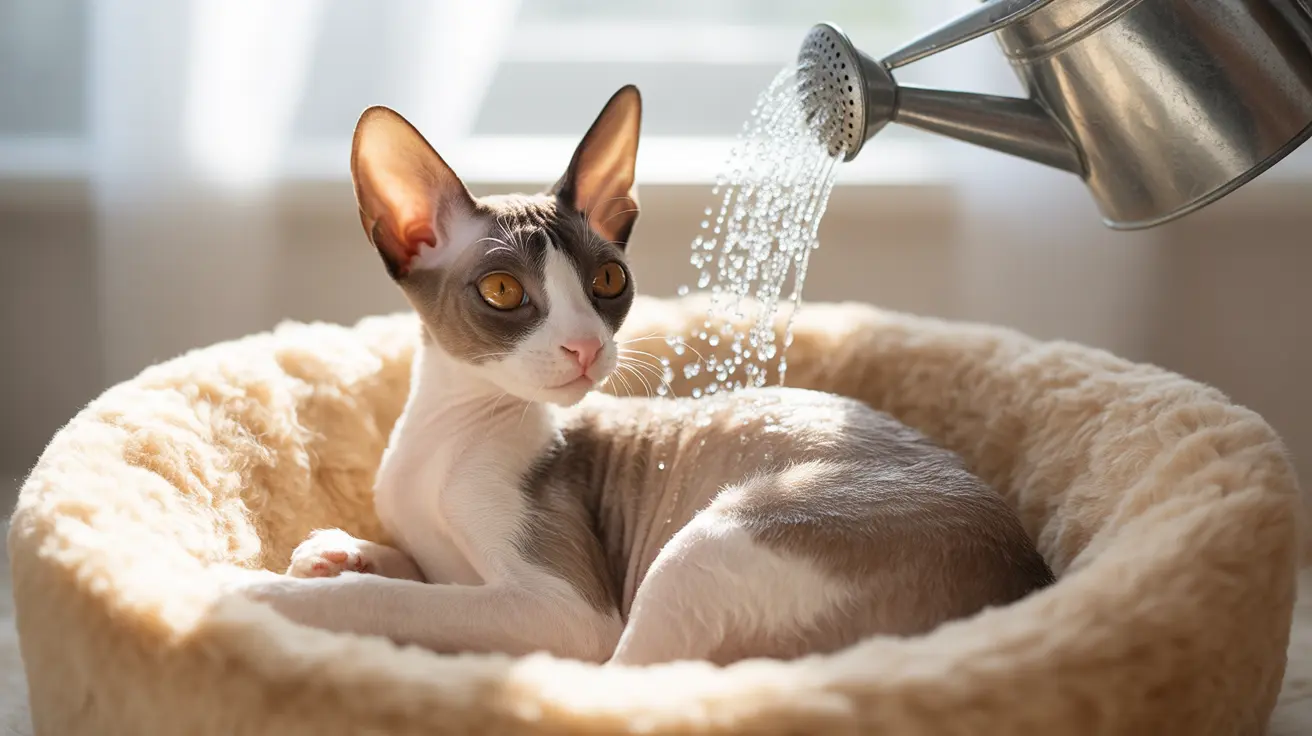Understanding the Unique Nature of Sphynx Cats
Unlike their furry counterparts, Sphynx cats lack the protective coat that helps regulate body temperature and shield their skin from environmental factors. This distinctive characteristic makes them particularly susceptible to various health conditions that require special attention and care from their owners.
Major Health Concerns in Sphynx Cats
Cardiac Complications
Hypertrophic Cardiomyopathy (HCM) stands as one of the most serious health concerns for Sphynx cats. This inherited heart condition causes the heart muscle to thicken abnormally, potentially leading to heart failure. Regular veterinary screenings and early detection are crucial for managing this condition effectively.
Skin-Related Issues
Without the protection of fur, Sphynx cats are prone to various skin problems, including:
- Excessive oil production leading to skin infections
- Sunburn and solar dermatitis
- Acne and rashes, particularly in skin folds
- Urticaria pigmentosa
- Temperature sensitivity
Regular bathing with appropriate cat-specific products is essential to maintain healthy skin and prevent these issues.
Temperature Regulation Challenges
Sphynx cats struggle to maintain proper body temperature due to their lack of fur. They need special accommodations to stay warm in cooler environments and protection from excessive heat or sun exposure. Many owners provide heated beds, cat clothing, and carefully controlled indoor environments to help their pets stay comfortable.
Essential Care Requirements
Grooming and Hygiene
Despite being hairless, Sphynx cats require more frequent grooming than many other breeds. Weekly bathing helps remove excess oils and prevent skin problems. Their ears and nail beds need particular attention to prevent infection and accumulation of debris.
Dietary Considerations
Sphynx cats typically have higher metabolic rates and require carefully planned nutrition to maintain healthy weight and energy levels. High-quality, protein-rich diets specifically formulated for their needs are recommended.
Environmental Management
Creating a suitable living environment for a Sphynx cat involves:
- Maintaining stable indoor temperatures
- Providing warm sleeping areas
- Protecting from direct sunlight
- Ensuring draft-free spaces
- Regular cleaning to prevent skin irritants
Preventive Healthcare Measures
Proactive health management is crucial for Sphynx cats. This includes:
- Regular veterinary check-ups
- Heart screenings for HCM
- Dental care and cleaning
- Skin examinations
- Temperature monitoring
- Vaccination maintenance
Frequently Asked Questions
What are the most common health issues that affect Sphynx cats?
The most common health issues include Hypertrophic Cardiomyopathy (HCM), skin problems, temperature regulation difficulties, ear infections, and dental disease. Regular veterinary check-ups can help monitor and manage these conditions effectively.
How can I prevent and manage heart disease (Hypertrophic Cardiomyopathy) in my Sphynx cat?
Regular cardiac screenings, especially through echocardiograms, are essential for early detection. While HCM cannot be prevented, early diagnosis allows for proper management through medication and lifestyle adjustments under veterinary guidance.
How often should I bathe my Sphynx cat to avoid skin problems?
Most Sphynx cats require bathing every 1-2 weeks with a gentle, cat-specific shampoo. However, the frequency may vary based on your cat's individual needs and skin condition. Always use lukewarm water and dry thoroughly afterward.
What special care do Sphynx cats need to regulate their body temperature?
Sphynx cats need a warm environment (around 75-80°F), access to sunny spots or heated beds, protection from drafts, and clothing in cooler weather. They should also be protected from direct sunlight to prevent sunburn.
How do I recognize and treat ear infections or dental disease in a Sphynx cat?
Watch for signs like head shaking, ear discharge, bad breath, or difficulty eating. Regular cleaning of ears and teeth is essential for prevention. Any signs of infection should be evaluated by a veterinarian for proper treatment.
Conclusion
While Sphynx cats require dedicated care and attention to their health needs, understanding and addressing these common health issues can help ensure a happy, healthy life for your unique pet. Regular veterinary care, proper grooming, and attention to their special needs will help prevent many common problems and maintain their well-being.






